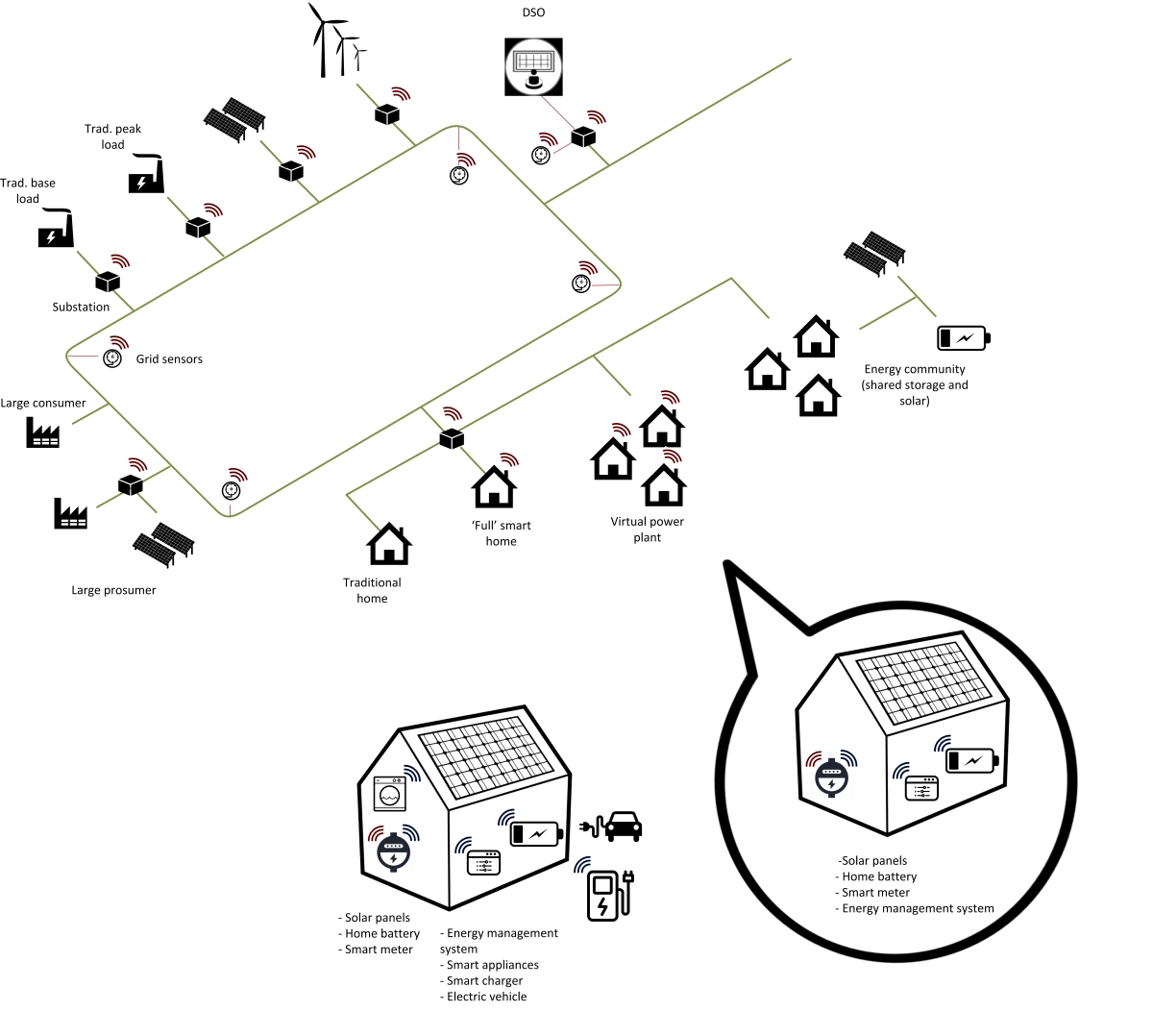About
Smart grid technologies in smart energy systems are considered to be important enablers in the transition to a more sustainable electricity system. The design of smart energy systems is highly challenging since they are complex socio-technical systems in which technological innovations co-evolve with social development, are path-dependent, loaded with value judgements and values conflicts thus leading to acceptability challenges.

Smart energy systems comprise the ICT enabled low voltage electricity grids, the smart meters as 'gatekeepers' and the advanced technologies inside the homes that are able to monitor and control the use of energy. Their primary purpose is to increase the electricity grid's ability to cope with unanticipated fluctuations in electricity generation at both side of the tradition electricity supply chain from e.g. wind and solar energy.
However, there are serious ethical concerns related to their use, concerning privacy, security, reliability, or affordability. Traditional social cost benefit analysis is not equipped to properly address these moral values, because it restricts analysis monetary terms and fails to argue why certain values need to be taken into account and how they can be traded off against each other. To secure the deployment of, among others, renewable energies, there is a strong urgency to take moral values into consideration.
This research project seeks to answer the two following questions:
- How can different technical and institutional designs for smart energy systems be valued in a socially and ethically responsible approach?
- What is a suitable framework for such an evaluation of enduring normative societal convictions?
We build this research on a framework for normative evaluation of energy systems, created during a first NWO-MVI pilot study (Künneke et al., 2015) and results from another NWO-MVI pilot study on the influence of stakeholder networks and platform flexibility for smart meter acceptance (Ligtvoet et al 2014). In our research, moral, social and epistemic values at stake for smart energy systems will be identified, as well as possible values conflicts. The goal is to identify acceptable organizational models of smart energy systems that take value conflicts into account. As moral values and functionalities are not static but co-evolve with the system to which they relate, an agent-based model will be created to test the robustness of proposed organizational models.
Three main components constitute the theoretical framework of this research:
- We use the capability approach that was proposed by Sen (1980) and Nussbaum (2001), which is well suited to identify embedded values related to energy systems. It therefore allows to go beyond traditional financial and utilitarian methods for evaluations of large infrastructures.
- We rely on the field of institutional economics and hence describe smart energy systems in both technical and institutional terms. This will allow to explore the dependency between system acceptability and related regulations.
- We describe smart energy systems as complex socio-technical system in which technological innovations co-evolve with social developments. This will allow to study the dynamic relationship between system acceptability and the set of (emerging) values at stake for this system.
